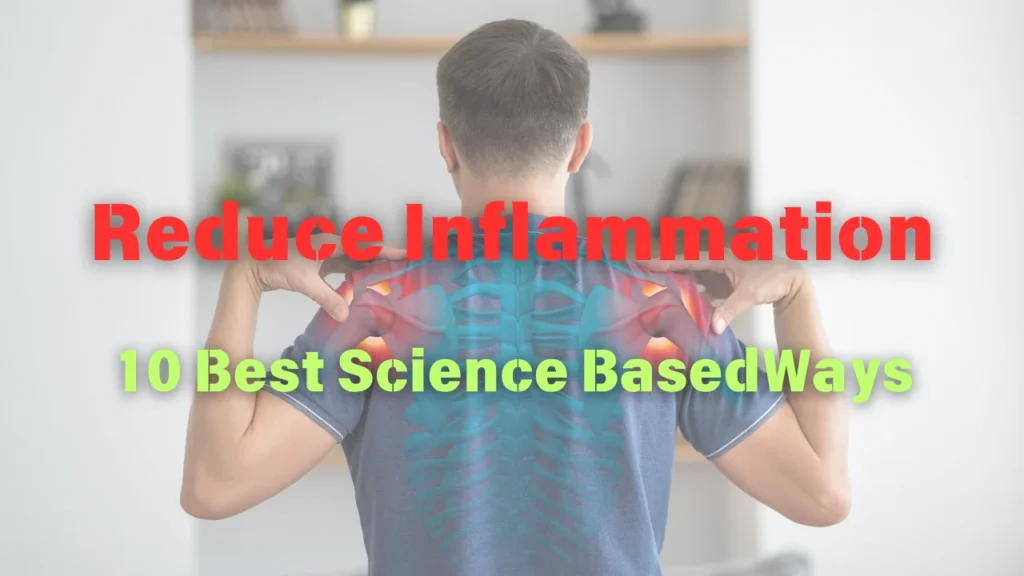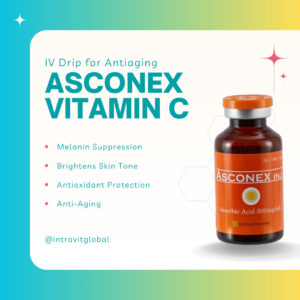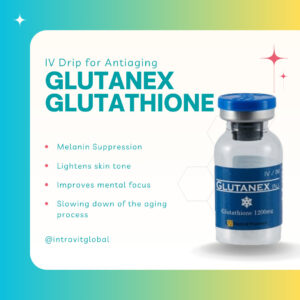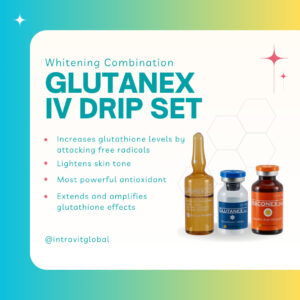Reduce Inflammation: 10 Best Science-Backed Solutions
Introduction
Inflammation is the body’s natural response to injury and infection, serving as a crucial component of our immune system. However, when inflammation becomes chronic, it can lead to various health issues, including autoimmune disorders, cardiovascular disease, and even cancer. Understanding and managing inflammation has been a focus of medical research since ancient times, with early civilizations using natural remedies like turmeric and willow bark to combat inflammatory conditions.
Brief History
The study of inflammation dates back to Ancient Egypt, where medical papyri described various treatments for inflammatory conditions. Hippocrates, the father of modern medicine, first documented the cardinal signs of inflammation: heat, redness, swelling, and pain. In the 19th century, Rudolf Virchow added loss of function as the fifth cardinal sign. Modern understanding of inflammation has evolved significantly, revealing its complex role in both healing and disease processes.
1. Optimize Your Diet with Anti-inflammatory Foods
The foundation of reducing inflammation lies in your dietary choices. Research shows that certain foods possess powerful anti-inflammatory properties that can significantly impact your body’s inflammatory response. Dark leafy greens like spinach, kale, and collard greens are rich in antioxidants that combat oxidative stress and reduce inflammation. Fatty fish such as salmon, mackerel, and sardines provide essential omega-3 fatty acids, particularly EPA and DHA, which have been shown to decrease the production of inflammatory molecules. Berries, especially blueberries and strawberries, contain anthocyanins that reduce inflammatory markers. Cruciferous vegetables like broccoli and cauliflower contain sulforaphane, a compound that activates antioxidant pathways. Include colorful fruits and vegetables, nuts, seeds, and whole grains while limiting processed foods, refined sugars, and unhealthy fats. Studies have shown that people following an anti-inflammatory diet experience reduced levels of C-reactive protein and other inflammatory markers.
2. Regular Exercise and Movement
Physical activity plays a crucial role in managing inflammation levels throughout the body. While intense exercise can temporarily increase inflammation, regular moderate exercise has been shown to reduce chronic inflammation significantly. The key lies in finding the right balance. Aim for at least 150 minutes of moderate aerobic activity or 75 minutes of vigorous activity per week. Activities like brisk walking, swimming, cycling, or yoga can help reduce inflammatory markers such as IL-6 and TNF-alpha. Exercise works by reducing visceral fat, which is a major source of inflammatory molecules, and by promoting the release of anti-inflammatory myokines from muscle tissue. Additionally, regular movement improves circulation, enhances immune function, and helps maintain a healthy weight – all factors that contribute to reduced inflammation. Research indicates that consistent exercise can lower inflammatory markers by up to 30% over time, particularly when combined with other healthy lifestyle choices.
3. Quality Sleep and Stress Management
Sleep deprivation and chronic stress are significant contributors to systemic inflammation. During sleep, your body produces and releases anti-inflammatory cytokines, which help regulate immune response and reduce inflammation. Aim for 7-9 hours of quality sleep per night in a cool, dark environment. Establish a consistent sleep schedule and create a relaxing bedtime routine. Stress management techniques such as meditation, deep breathing exercises, and mindfulness practices have been shown to reduce levels of inflammatory markers like cortisol and C-reactive protein. Regular practice of these techniques can lead to improved sleep quality and reduced stress levels. Studies have demonstrated that individuals who practice stress-reduction techniques and maintain good sleep hygiene show significantly lower levels of inflammatory markers compared to those who don’t. The relationship between sleep, stress, and inflammation forms a complex feedback loop, where improvements in one area often lead to benefits in the others.
4. Herbal and Natural Supplements
Natural supplements have been used for centuries to combat inflammation, and modern research continues to validate many traditional remedies. Turmeric, particularly its active compound curcumin, has shown remarkable anti-inflammatory properties comparable to some pharmaceutical drugs. Ginger contains gingerols and shogaols that effectively reduce inflammation and oxidative stress. Omega-3 supplements, particularly from fish oil or algae sources, provide concentrated doses of EPA and DHA. Other beneficial supplements include resveratrol from grape seeds, green tea extract, and boswellia serrata. When selecting supplements, choose high-quality products from reputable manufacturers and consider factors like bioavailability and proper dosing. Clinical studies have shown that combining certain supplements can create synergistic effects, enhancing their anti-inflammatory properties. However, it’s crucial to consult with healthcare providers before starting any supplement regimen, as some can interact with medications or have contraindications.
5. Gut Health Optimization
The gut microbiome plays a central role in regulating inflammation throughout the body. A healthy gut barrier prevents the release of inflammatory compounds into the bloodstream, while beneficial bacteria produce anti-inflammatory substances. Focus on consuming prebiotic-rich foods like garlic, onions, and Jerusalem artichokes, which feed beneficial bacteria. Include fermented foods such as yogurt, kefir, sauerkraut, and kimchi to introduce beneficial probiotics. Avoid foods that can damage gut integrity, such as excessive alcohol, processed foods, and certain additives. Consider specific probiotic strains that have been shown to reduce inflammation, such as Lactobacillus and Bifidobacterium species. Research indicates that improving gut health can lead to significant reductions in inflammatory markers and improvements in various inflammatory conditions, from arthritis to inflammatory bowel disease.
6. Environmental Toxin Reduction
Our modern environment exposes us to numerous toxins that can trigger inflammatory responses. Take steps to minimize exposure to environmental pollutants, pesticides, and endocrine-disrupting chemicals. Use air purifiers with HEPA filters to remove airborne particles and invest in a quality water filtration system. Choose organic produce when possible, particularly for items on the “Dirty Dozen” list. Replace plastic food storage containers with glass or stainless steel alternatives to reduce exposure to BPA and other harmful chemicals. Regular detoxification practices, such as dry brushing, sauna sessions, and proper hydration, can help support the body’s natural detoxification processes. Studies have shown direct correlations between exposure to environmental toxins and increased inflammatory markers, making toxin reduction an essential component of any anti-inflammatory protocol.
7. Mind-Body Practices
The connection between mental and physical health is particularly relevant when it comes to inflammation. Regular practice of yoga, tai chi, or qigong has been shown to reduce inflammatory markers while improving flexibility, balance, and mental well-being. These practices combine physical movement with breathing techniques and meditation, creating a powerful anti-inflammatory effect. Research has demonstrated that mind-body practices can reduce levels of pro-inflammatory cytokines while increasing anti-inflammatory markers. The vagus nerve, which plays a crucial role in regulating inflammation, can be stimulated through these practices, leading to improved inflammatory responses. Additionally, these activities help reduce stress, improve sleep quality, and enhance overall well-being, creating a positive feedback loop that supports reduced inflammation throughout the body.
8. Targeted Temperature Therapy
Both hot and cold therapies can be effective in reducing inflammation when applied appropriately. Cold therapy, such as ice baths or cryotherapy, can reduce acute inflammation by constricting blood vessels and reducing inflammatory mediators. Heat therapy, including sauna sessions and hot compresses, can improve circulation and promote the removal of inflammatory substances. Contrast therapy, alternating between hot and cold, can be particularly effective in reducing inflammation and promoting healing. Regular sauna use has been shown to reduce chronic inflammation through heat shock proteins and other mechanisms. Studies indicate that controlled exposure to temperature extremes can trigger adaptive responses that help regulate inflammatory processes throughout the body.
9. Fasting and Time-Restricted Eating
Intermittent fasting and time-restricted eating have gained attention for their potential to reduce inflammation. During fasting periods, the body activates cellular repair processes and reduces inflammatory markers. Different fasting protocols, such as 16/8 time-restricted eating or alternate-day fasting, can be effective in reducing inflammation. The benefits appear to be mediated through multiple mechanisms, including improved insulin sensitivity, reduced oxidative stress, and enhanced autophagy. Research has shown that fasting can reduce levels of pro-inflammatory cytokines while increasing anti-inflammatory markers. However, it’s important to approach fasting gradually and under appropriate medical supervision, as it may not be suitable for everyone.
10. Hormone Balance and Optimization
Hormonal imbalances can significantly impact inflammation levels in the body. Key hormones like cortisol, insulin, thyroid hormones, and sex hormones all play roles in regulating inflammatory responses. Regular exercise, proper nutrition, and stress management help maintain optimal hormone levels. Consider having hormone levels tested regularly, particularly if experiencing symptoms of imbalance. Work with healthcare providers to address any identified hormonal issues through lifestyle modifications or appropriate medical interventions. Research has demonstrated strong connections between hormonal balance and inflammatory markers, making hormone optimization an important consideration in managing inflammation.
Conclusion
Reducing inflammation requires a comprehensive approach that addresses multiple aspects of health and lifestyle. By implementing these evidence-based strategies consistently, you can significantly impact your body’s inflammatory status and improve overall health outcomes. Remember that individual responses may vary, and it’s important to work with healthcare providers to develop a personalized approach to managing inflammation.
Frequently Asked Questions
- How long does it take to see results from anti-inflammatory practices?
Results can vary, but most people notice improvements within 4-8 weeks of consistent practice, with continued benefits over time. - Can inflammation be completely eliminated?
Some inflammation is necessary for health and healing. The goal is to reduce excessive or chronic inflammation while maintaining normal inflammatory responses. - Are there specific tests to measure inflammation levels?
Yes, tests like C-reactive protein (CRP), erythrocyte sedimentation rate (ESR), and specific cytokine panels can measure inflammation levels. - Which foods are the most inflammatory?
Processed foods, refined sugars, trans fats, excessive red meat, and alcohol are among the most inflammatory foods. - Is inflammation always bad for health?
No, acute inflammation is a necessary part of healing and immune function. It’s chronic, unresolved inflammation that causes health problems.
-
Hot-Sale
Asconex Vitamin C (Ascorbic Acid) IV Drip for Antiaging, Melanin Suppression, Antioxidant and Skin Brightness Benefits
£38.00 – £70.00Price range: £38.00 through £70.00 Select options This product has multiple variants. The options may be chosen on the product page -
Hot-Sale
Glutanex Glutathione 1200mg IV Drip for Antiaging, Melanin Suppression, Antioxidant Skin Brightness Benefits
£65.00 – £120.00Price range: £65.00 through £120.00 Select options This product has multiple variants. The options may be chosen on the product page -
Hot-Sale
Glutanex IV Drip Set, Whitening Combination Kit with Glutathione, Vitamin C, Lipoic Acid for Antiaging, Skin Brightness Benefits
£30.00 – £250.00Price range: £30.00 through £250.00 Select options This product has multiple variants. The options may be chosen on the product page
Checkout our Facebook Page and leave your review about our Health Care Products.







